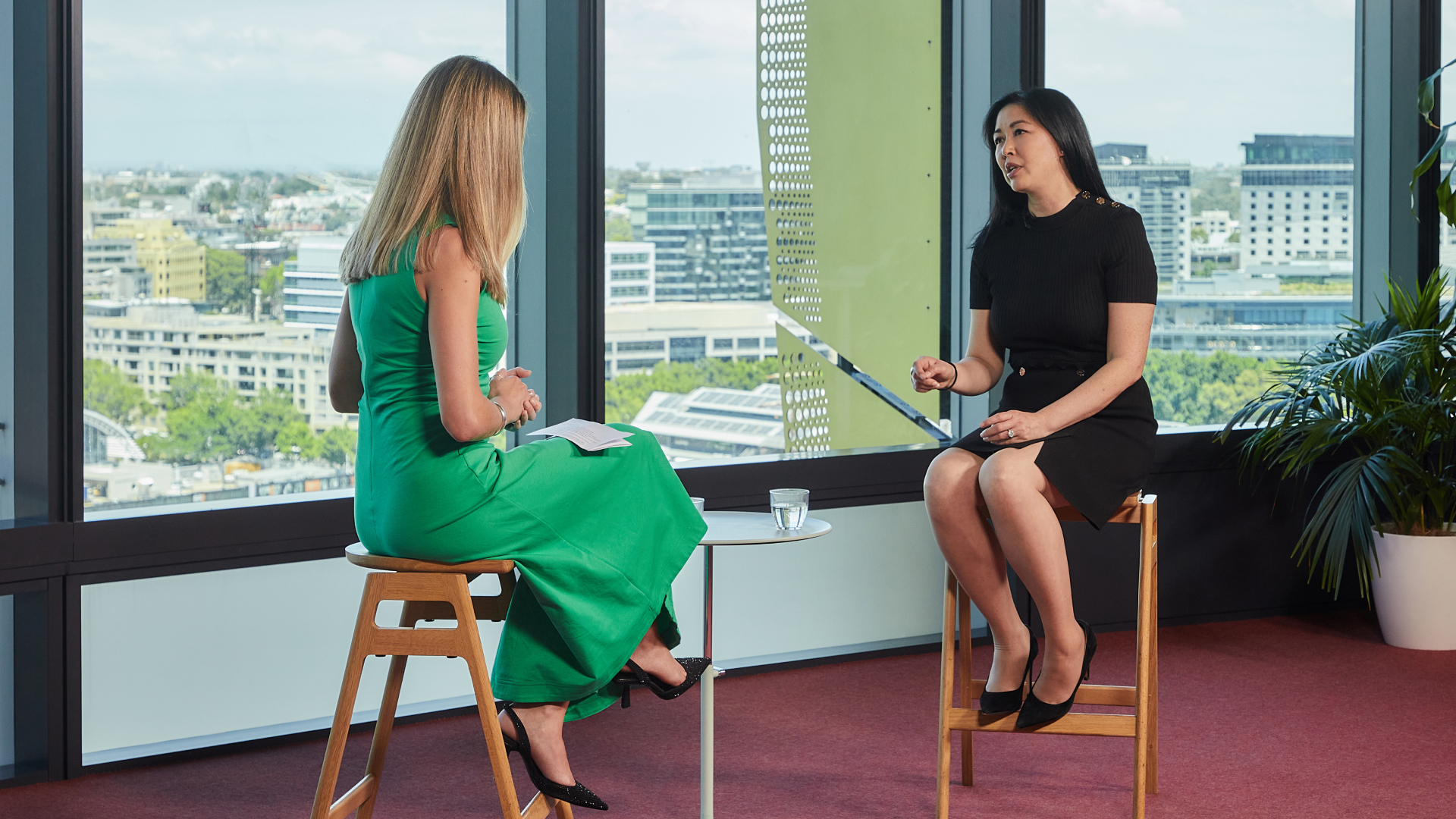The 10 most underappreciated risks in 2024
Sometimes it’s the things ticking over in the background that can cause the greatest chaos in markets.
Take an unidentified virus circulating in a lesser-known city in China back in late 2019. Or the rise in populism that resulted in Brexit back in 2017. Just a few years earlier, the debt problems in Greece threatened the ongoing existence of the European Union.
We finished 2023 with equity markets on a high, while bond markets are pricing for a soft landing.
What underestimated nasties in today’s world could be the biggest market disruptors in 2024? After all, there’s a reason the famed Doomsday Clock still stands at 90 seconds to midnight (i.e. a catastrophic disaster to the world is imminent).
We spoke to 12 fund managers to see what they viewed as the most underappreciated risks for the year ahead. While none of them predict COVID 2.0 (at this stage...), some of their concerns might take you by surprise.
Our featured fund managers include:
- Mary Manning, Alphinity Investment Management
- Marc Whittaker, IML
- Vihari Ross, Antipodes
- Chris Stott, 1851 Capital
- Joel Fleming, Yarra Capital Management
- Emma Fisher, Airlie Funds Management
- Daniel Sullivan, Janus Henderson Investors
- Dr Philipp Hofflin, Lazard Asset Management
- Francyne Mu, Franklin Templeton
- Matthew Kidman, Centennial Asset Management
- Matthew Haupt, Wilson Asset Management
- Bob Desmond, Claremont Global
Note: You can watch the video by clicking the player, listen to the podcast, or read an edited transcript below. These interviews were filmed on Tuesday, 12 December 2023.
Other ways to listen:
Edited Transcript
Ally Selby: Hello and welcome to Livewire's Outlook series for 2024. I'm Ally Selby.
James Marlay: I'm James Marlay. Unlike my car on the weekend, this video is dedicated towards helping you avoid the potholes.
Ally Selby: We'll be asking 12 fund managers to fine-tune their radars so that you can avoid the risks that could torpedo your performance over the year ahead.
I feel like one of the major lessons from the last few years is that no one knows what the future holds. What is the team spending the most time trying to understand right now? What's the biggest risk that you feel like is being underappreciated by the market?
Risk #1 – Geopolitical risks from regional unrest to elections
Mary Manning: One risk for 2024 is that there are a lot of elections. There are over 40 elections that happen in the world next year, starting with the Taiwanese election in January and culminating with the US presidential election in November. In between, there's a Russian presidential election, a Ukrainian presidential election, India, Indonesia, some of the biggest emerging markets. On top of that, geopolitics is quite fragile. You have Russia-Ukraine ongoing and now Israel and Hamas. I feel like the market is not paying attention to any of that.
We don't actually spend a lot of time analysing that because we are bottom-up stock pickers and we don't take a macro view certainly on elections, but it's something to be wary of and certainly aware of as we go into 2024. If you remember 2016, there were a lot of market dislocations because of Brexit and the Trump election, so we need to keep our eyes open for that in 2024.
Ally Selby: What are the odds you think of Trump getting re-elected?
Mary Manning: No idea. That's why we're not spending a lot of time on it because there are actually two things that you have to get right. Number one, you have to get the election outcome correct. Secondly, you have to get the market reaction correct. As you've seen over the last few years, getting both those things correct is quite difficult, so we focus on stock-specific risks and making sure we have a diversified portfolio of high-quality stocks that can weather those sorts of storms.
Chris Stott: We think geopolitical risks are the highest they've been in for many decades. You look at Ukraine, you look at parts of the world right now, there's a lot of unrest right now. As you fast-forward into next year, President Trump is the favourite to become the next President of the US according to the bookies and according to the early polling. They're suggesting he's going to potentially get in. That is certainly one thing that we're working through right now, trying to fully understand what the ramifications of that could be for the overall global equity market.

Risk #2: Government intervention in markets
Marc Whittaker: We're really mindful of the risks of increasing government intervention in markets and how markets operate. If you look at the gas price caps in the past, more recently, we've had the industrial relations legislation go through parliament. These are all developments that you're adding costs to doing business for companies listed on the ASX. When the market's really focused on margins and the ability of companies to maintain margins in a higher cost environment, these additional imposters are coming in, it's really a question mark for how well companies can manage their margins going forward. We're really cognisant of those potential risks.
Risk #3: Tail risk in the private equity debt space
Vihari Ross: This is something that our clients ask us so often, "Where is that fracture going to come from?" I think one thing that we've really identified so far is there's some tail risk in that private equity debt space. If you look at private equity, it's about a third of all high yield and leveraged loans. Within that, we know within the leveraged loan space in particular, 75% of that is now rated triple A or below. In the 2000 tech crash, that was 35%.
You've got these private equity backed companies that have grown dramatically in terms of the debt stack, that's four times higher than it was at the time of the GFC. They've got costs that have gone from 4% to 10% in terms of servicing their loans. When you look at the average, it seems benign. The average servicing cost is like 45% of their operating profits. But if you take out the companies that are net cash, then the remaining companies that are geared up, they have debt burdens of almost 85% of their operating profit on average.
You've really got this tail risk there that if rates end up staying higher and don't go back to the good old days of low rates, you could actually face some distress here. The reason it matters is because you've got the blowback on the broader economy. As a result of that, you have distress in parts of the debt market might impact higher quality companies and their debt ability to raise debt. The other thing is that PE-backed companies employ 10% of the US population, so you can really see a fracture that could emerge in the US economy if something like that was to go wrong.
.jpg)
Risk #4: Slowing global economy
Joel Fleming: We think the market and the economy are going to slow, so it's going to be harder to push prices up. Costs are going up, and that's going to be a hard environment. We're looking for stocks where they can continue to take market share, they can grow into a new market, and just the durability of those underlying cash flows and the ability to reinvest in themselves, very much at the micro level. You're always worried about geopolitics, you are always worried about the big election cycles that are happening. We can't control that, but we look at those underlying fundamentals. It's about a small company that's growing, it is improving its structure in the market and customers really want to use their products.
Risk #5: The execution of the energy transition
Emma Fisher: Not so much 2024, but in the next few years, I keep coming back to the energy transition. First of all, the stakes are incredibly high because we have to do it, and then secondly, we just don't have a precedent for it. If you look at 100 years of markets, they've done that, and 100 years of standard of living has done that. Then 100 years of use of fossil fuels has also done that.
Whether or not that's correlation or causation, I'm not sure, but we don't have a precedent for moving down the energy density scale in the way that we now have to. What do I mean by energy density? Solar and wind, they're less energy-dense forms of energy, which means they take up more space to produce the same amount of energy. We have to move onto this stuff. It is less energy-dense, and I'm not quite sure what that means for markets, but markets basically always need perfect execution or they get the wobbles. I think it is going to be very difficult to execute this perfectly, reliably and cheaply over the next few years.
Risk #6: The potential for oil prices to fall significantly
Daniel Sullivan: In the oil market, it is quite interesting. That's about a third of our benchmark, and we're underweight that, but even so, it's a lot of money invested in oil companies. They all trade very similar to each other because the commodity is so dominant. What we're seeing is the OPEC plus control of the oil markets weakening and oil's down at about $70 from $95 just recently. I think the risk here is that oil drops perhaps into the $50s, and that all puts stress on the oil companies and see that sector underperform quite a bit. It is atypical to have such a large exposure in one component of the portfolio that has that type of risk hanging over it.
Ally Selby: But it would also have broader implications for the whole market.
Daniel Sullivan: Yes. If oil falls, it is obviously very good for lowering inflation, and that's a good thing. That's started to happen, but we certainly need more of that to get prices to be more stable, so that'd be a good thing for the global economy.
Risk #7: Cybersecurity
Francyne Mu: We're not macro investors, so we're not trying to make those calls. Obviously, there's been a lot of geopolitical risk out there or heightened awareness of geopolitical risk. I think part of that, actually, but on a fundamental basis is cybersecurity. That's an area that I think is underappreciated by investors. We're spending a lot of time looking at the opportunities there, how the market consolidates, really what governments and companies are doing in order to plug those gaps within the networks to thwart some of those risks out there.

Risk #8: Not being confident in buying
Matthew Kidman: I think the risk this year is you're not confident enough. You go into these years where it reminds me, not as extreme, but when COVID sold off and the world just shook and everything was down, sentiment was busted. Then, you had to get back on the horse, but you had to ride that horse very quickly. You had to put it in and just go because the market took off. I think there's a little bit of that this year. Where we've done worst over the years is when the market's taken off. Because we can go to cash, we can short stocks, and so we can play defensive quite well, but sometimes you've just got to plain attack full-on. I get the feeling that's where we're heading this year. As the year unfolds, I think it gathers momentum. It is not the V-shape that we saw back at COVID, but that's what I worry about.
Risk #9: Liquidity challenges
Matthew Haupt: I'm going to go back to liquidity. At the moment, there's excess liquidity in the system. The US Treasury are issuing a lot of treasuries and the excess liquidity is taking those up. But there's going to be a point next year when that excess liquidity will not be able to fund those treasuries, and next year there's going to be over 2 trillion of treasuries on issue. Everyone's focused on inflation and rates. That liquidity, for me, is the big swing factor in 2024 where I think we'll have a negative liquidity impulse. For me, that's the one to really watch for.
Risk #10: A recession
Dr Philipp Hofflin: Look, the biggest question obviously is what's going to happen with the economy. It is, by far, the biggest one. The risk is that the market is currently quite discounting a soft landing. I really just want to say two things about that from an outside perspective. The first one is, in the US since the Second World War, we've had 10 fair tightenings when inflation has got out of control a little bit, and of those, nine ended in hard landings. The odds aren't great.
Secondly, the average time gap between when the US market peaks and the start of the recession is three month. The market never sees it coming. It never anticipates a downturn. It always thinks there's going to be soft landing. The question is, it going to be different this time?
Bob Desmond: We don't look at risk in terms of macro, so we are very much bottom-up. All our companies, we'll just be looking at, the biggest risk for all of them is losing competitive advantage really and losing relevance to their customers. That's the thing we always worry about the most.
But to think about it in a broader sense, I think the bigger risk, and now we're talking about markets, is that we seem to have factored in now a soft landing. Inflation, long bonds move very, very quickly and we're assuming a soft landing. Sometimes bonds move because there's a recession on the way. Now I'm not making a prediction, but we've assumed a soft landing, so we could get one of two things. We could potentially get rates going back up again because inflationary pressures haven't abated. Or on the other side, we could actually get a recession.
We don't really spend time thinking about it. But the market seems very, very bullish in the last six weeks.

What do you think will be the biggest risk to markets in 2024?
Let us know in the comments below.
3 topics
12 contributors mentioned



